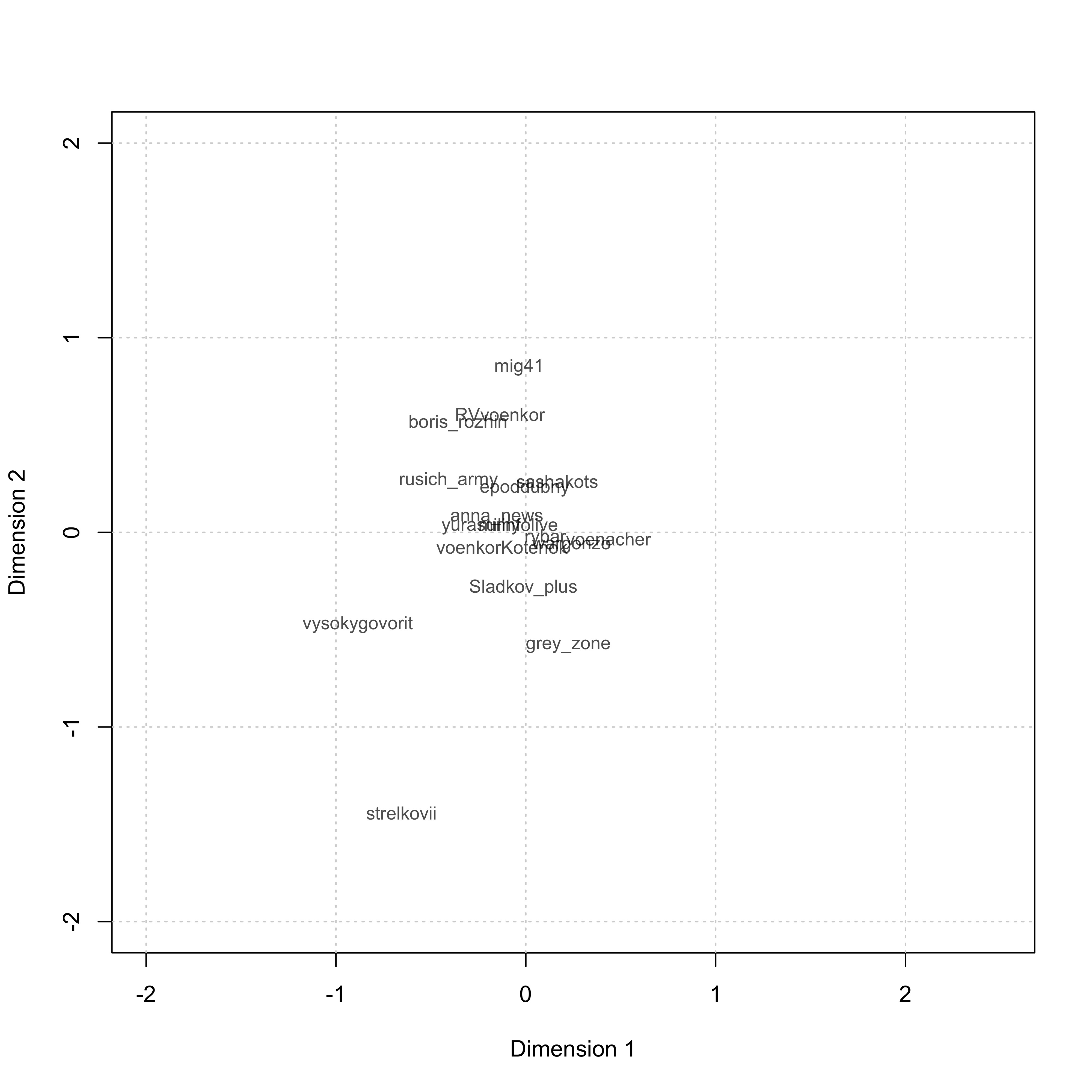The full dataset is now openly available and awaiting publication (soon).
The full-scale Russian invasion of Ukraine last year significantly impacted the political situation within Russia itself. The regime has become much tougher in terms of suppressing dissent and, in particular, criticism of a political leadership that has decided to invade a neighboring country. Thus, independent media and foreign social media platforms were almost the first to be hit. At the same time, the military situation gave rise to a new phenomenon of military bloggers (the so-called "voenkory," or military correspondents), who began to cover events from the battlefields. Their main platform is Telegram which is a vibrant platform for political discussions in Russia.
Military bloggers are united by support for the decision of the political leadership to invade Ukraine, but the degree of their radicalization, including the degree of criticism of the tactical decisions made by the Russian Ministry of Defense, differs. Military bloggers have become an important part of the media landscape, covering the war for the Russian audience, and their popularity also affects discussion in mainstream media about the management of the war, thus indirectly affecting the decisions on the battlefield (e.g., attacks on electric infrastructure). Therefore, understanding the “digital arena” of milbloggers is essential to comprehending the dynamics of reciprocal influence between media discussion and political behavior.
In this short post, we decided to look at how unified the coverage of the activities of the military command by the authors of these telegram channels is.

The whole dataset is now available to all scholars and researchers at https://osf.io/ctbz9/
We study 20 most popular Telegram channels according to the number of subscribers and the citation by other channels (Source: TGStat [1]). We mostly rely on the list curated by independent Russian journalists who investigate the activity of military bloggers (for instance, the Russian version of the investigation about the authors of one of the most influential channel Rybar [2]; the English version [3]).
Using Telegram’s API, we have collected all the posts of these Telegram channels since February 21, 2022, when Russia officially recognized the independence of the Donetsk and Luhansk People's Republics. Then, we derived posts that mention 18 generals responsible for commanding both the territorial military districts and the general military theater in different periods of the war since February last year: Alexander Dvornikov, Gennady Zhidko, Sergey Surovikin, Valery Gerasimov, Alexander Zhuravlev, Andrey Sychevoi, Roman Berdnikov, Sergey Kuzovlev, Evgeny Nikiforov, Alexander Chaiko, Rustam Muradov, Andrey Kuzmenko, Alexander Lapin, Alexander Linkov, Andrey Mordvichev, Andrey Serdyukov, Mikhail Teplinskiy, Oleg Makarevich. This list is based on the report produced by the Institute for the study of war [4].
We examined the dynamics of the publication of posts dedicated to these generals as well as how similar texts about generals produced by Telegram channels are to each other. For the latter, correspondence analysis was used (provided by the quanteda R package).
Here we present only some of the figures dedicated to the most notable Russian generals: Valery Gerasimov, Sergei Surovikin, and Alexander Lyapin. As can be seen from the results of correspondence analysis (Figures 1-3), military bloggers express a different range of attitudes towards the three most famous generals, whose activities receive the highest resonance in the media. Moreover, there are also overlaps between different channels, which means that they actively repost messages from one another. The authors of Telegram channels allow themselves different assessments of the activities of the military command, including quite critical ones, which cannot be imagined, for example, in the case of national television, where the coverage is tightly controlled by the Presidential Administration.

Figure 1. Valery Gerasimov

Figure 2. Sergey Surovikin

Figure 3. Alexander Lyapin
These are only the first stages of the analysis, which require consideration of more factors related to the coverage of the war (for instance, adding the temporal dimension ancouring to the changes in the command chain or event in the battlefields). But even such a preliminary analysis shows that military bloggers covering the course of the war in Ukraine from a pro-Russian position do not do it in unison but present different assessments of the actions of the Russian command. At the same time, they interact with each other through reposts, thereby forming networks of channels that may promote a certain agenda.